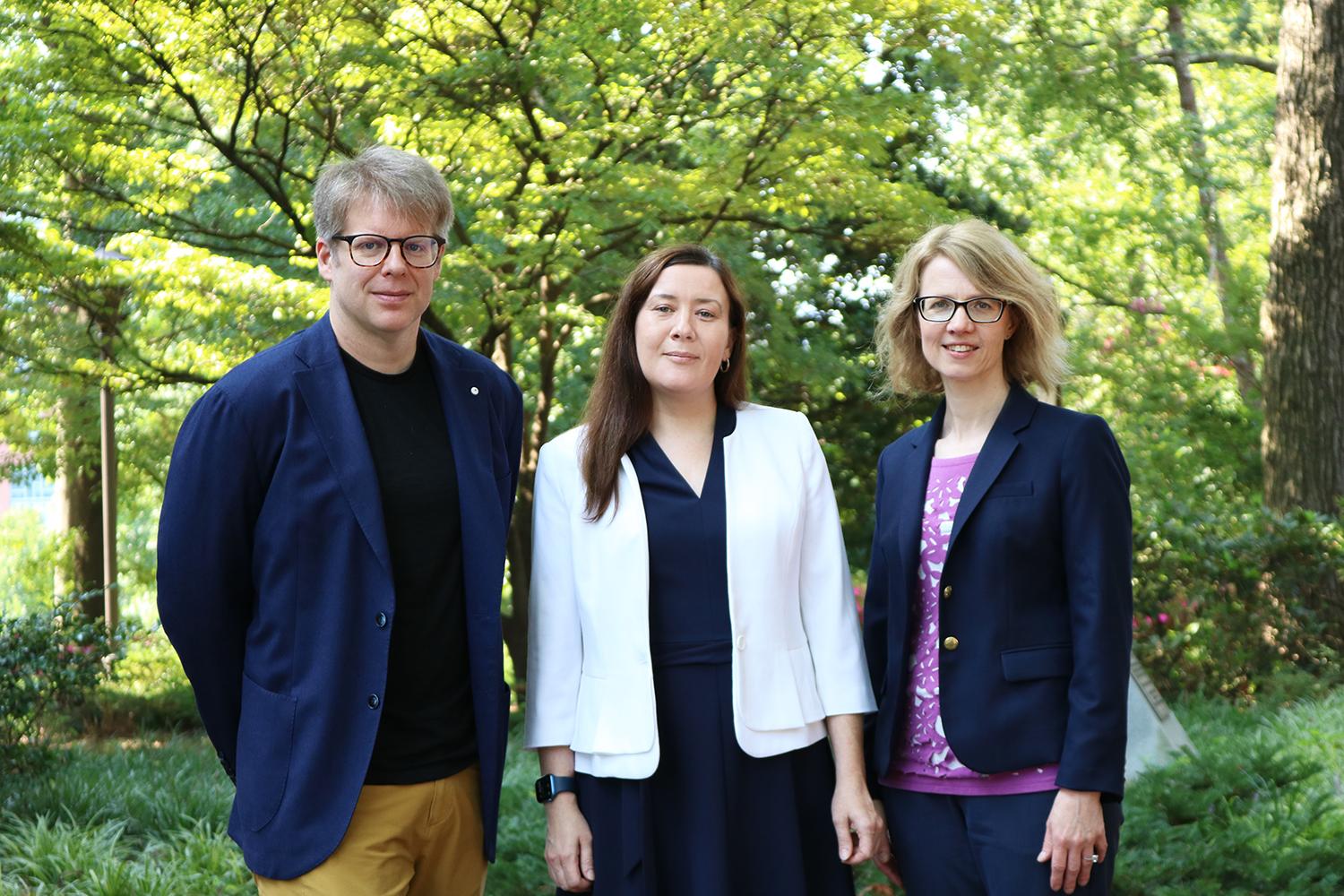Control at the Molecular Scale
Welcome to Dr. Martha Grover's Research Group
Welcome to the home page of the Grover Group at Georgia Tech.
Our group's research activities in process systems engineering focus on understanding macromolecular organization and the emergence of biological function.
Discrete atoms and molecules interact to form macromolecules and even larger mesoscale assemblies, ultimately yielding macroscopic structures and properties. A quantitative relationship between the nanoscale discrete interactions and the macroscale properties is required to design, optimize, and control such systems; yet in many applications, predictive models do not exist or are computationally intractable.
The Grover group is dedicated to the development of tractable and practical approaches for the engineering of macroscale behavior via explicit consideration of molecular and atomic scale interactions. We focus on applications involving the kinetics of self-assembly, specific those in which methods from non-equilibrium statistical mechanics do not provide closed form solutions. General approaches employed include stochastic modeling, model reduction, machine learning, experimental design, robust parameter design, and estimation.
Discrete atoms and molecules interact to form macromolecules and even larger mesoscale assemblies, ultimately yielding macroscopic structures and properties. A quantitative relationship between the nanoscale discrete interactions and the macroscale properties is required to design, optimize, and control such systems; yet in many applications, predictive models do not exist or are computationally intractable.
The Grover group is dedicated to the development of tractable and practical approaches for the engineering of macroscale behavior via explicit consideration of molecular and atomic scale interactions. We focus on applications involving the kinetics of self-assembly, specific those in which methods from non-equilibrium statistical mechanics do not provide closed form solutions. General approaches employed include stochastic modeling, model reduction, machine learning, experimental design, robust parameter design, and estimation.
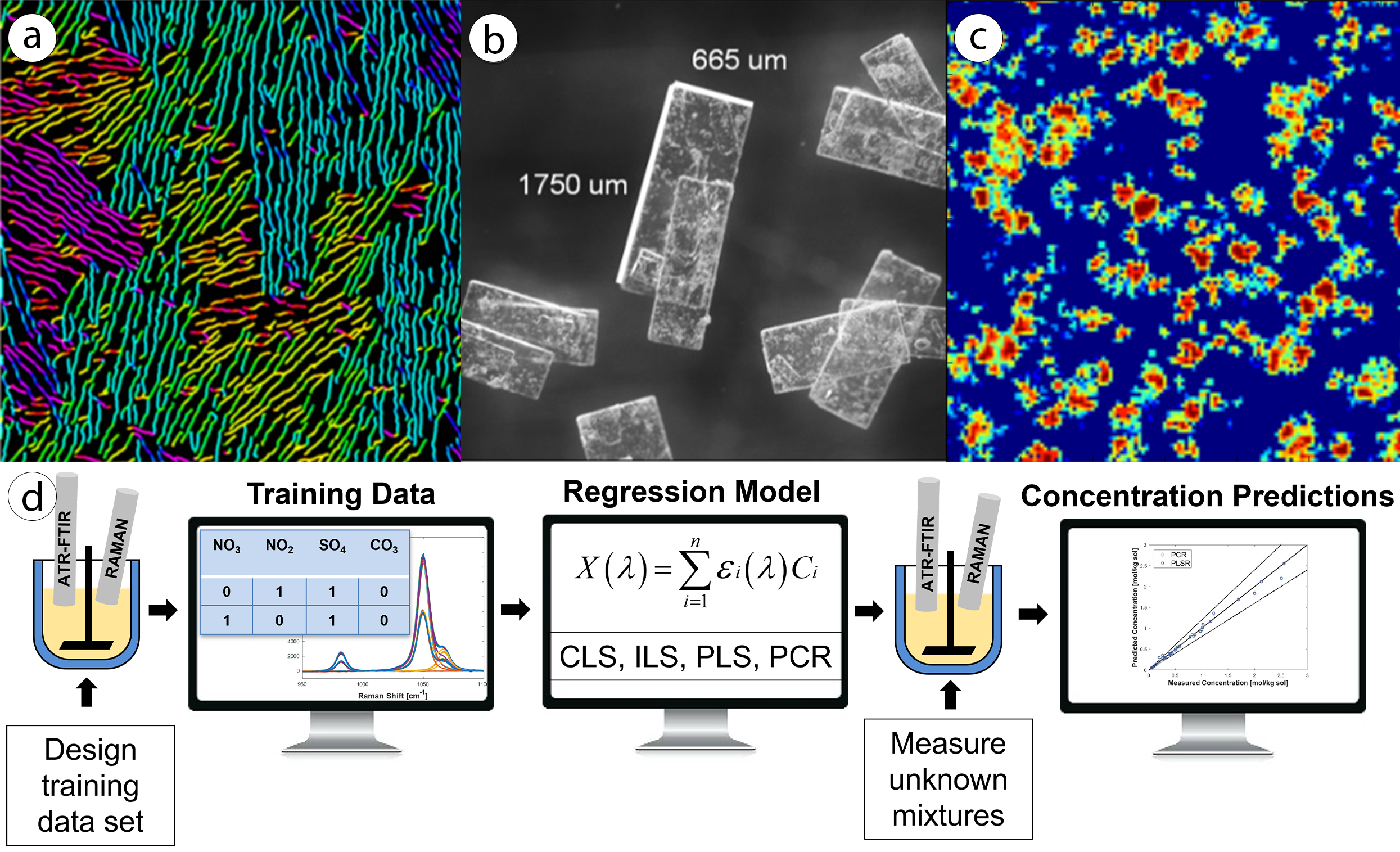
a AFM image of conjugated polymers;
b microscope image of darapskite crystals;
c kinetic Monte Carlo simulation of self-organization in replicating polymers;
d Combining esperimental data with models to predict the composition of nuclear waste simulants
b microscope image of darapskite crystals;
c kinetic Monte Carlo simulation of self-organization in replicating polymers;
d Combining esperimental data with models to predict the composition of nuclear waste simulants
Current Projects
- Pharmaceutical manufacturing
- Polymer informatics
- Nuclear waste separation
Grover Group News
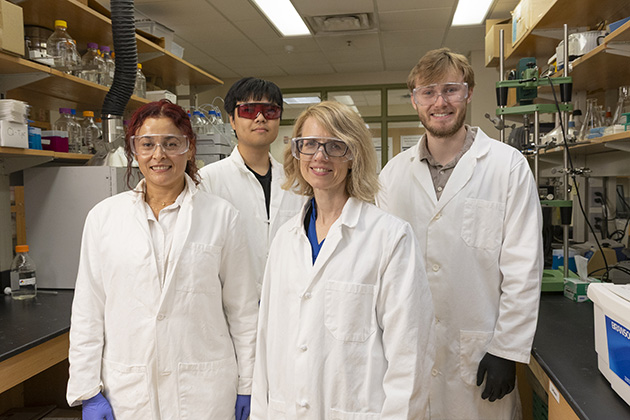
Dec 2025 Grover Group was featured in Georgia Tech Research article along with other collaborators. The article highlighted current research around nuclear waste and its management, emphasizing how current research can clarify misconceptions about nuclear waste and contribute towards safer handling, processing, and long-term planning. (from left to right): Viviana, Yeonwoo, Martha, and Steven. [Link]
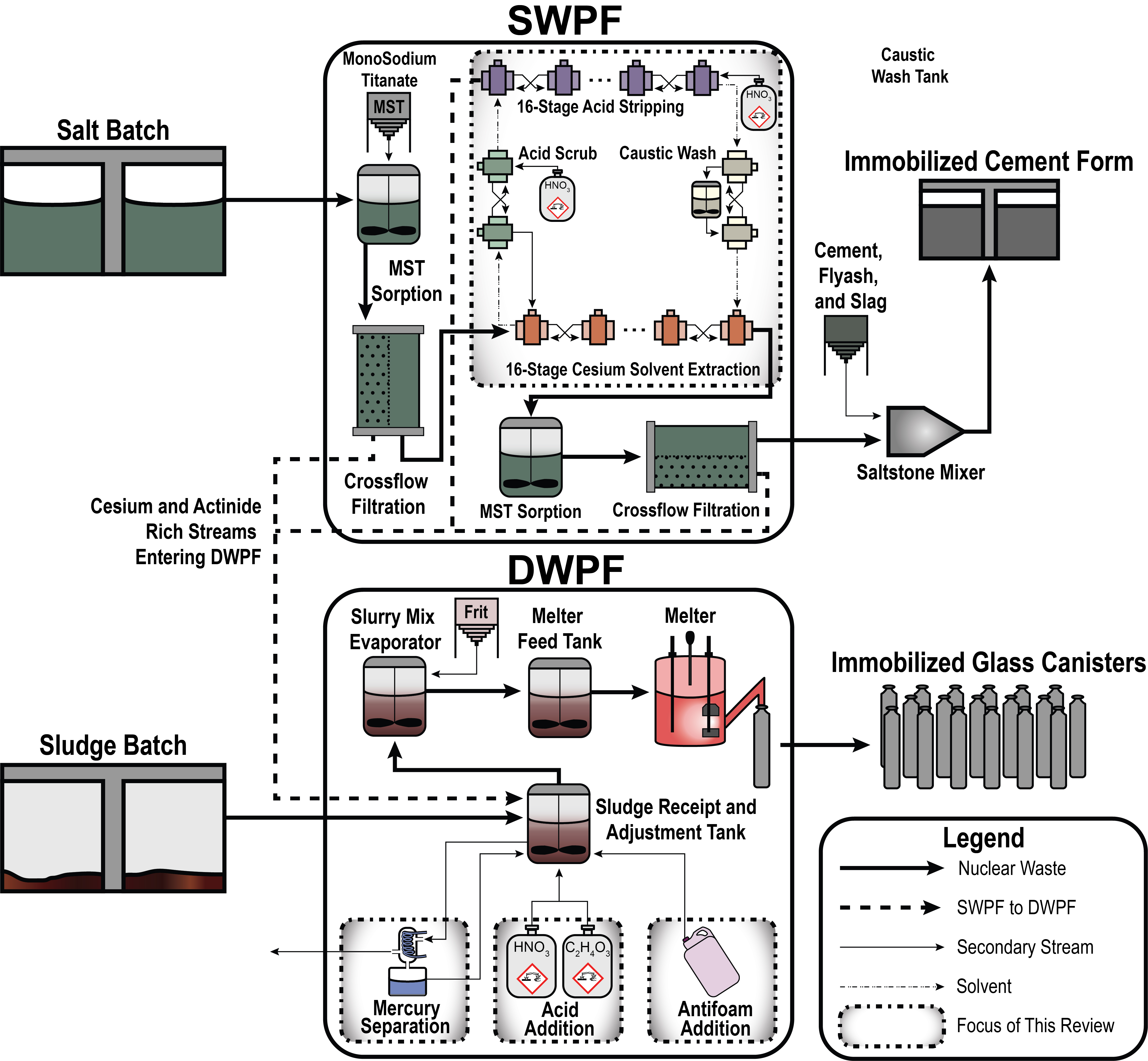
June 2025 – Grover Group members (Steven, Rupanjali, Nischal, Viviana, and Martha) published an open-access review article on chemical engineering applications at the Savannah River Site with collaborators from the Savannah River National Laboratory [Link]
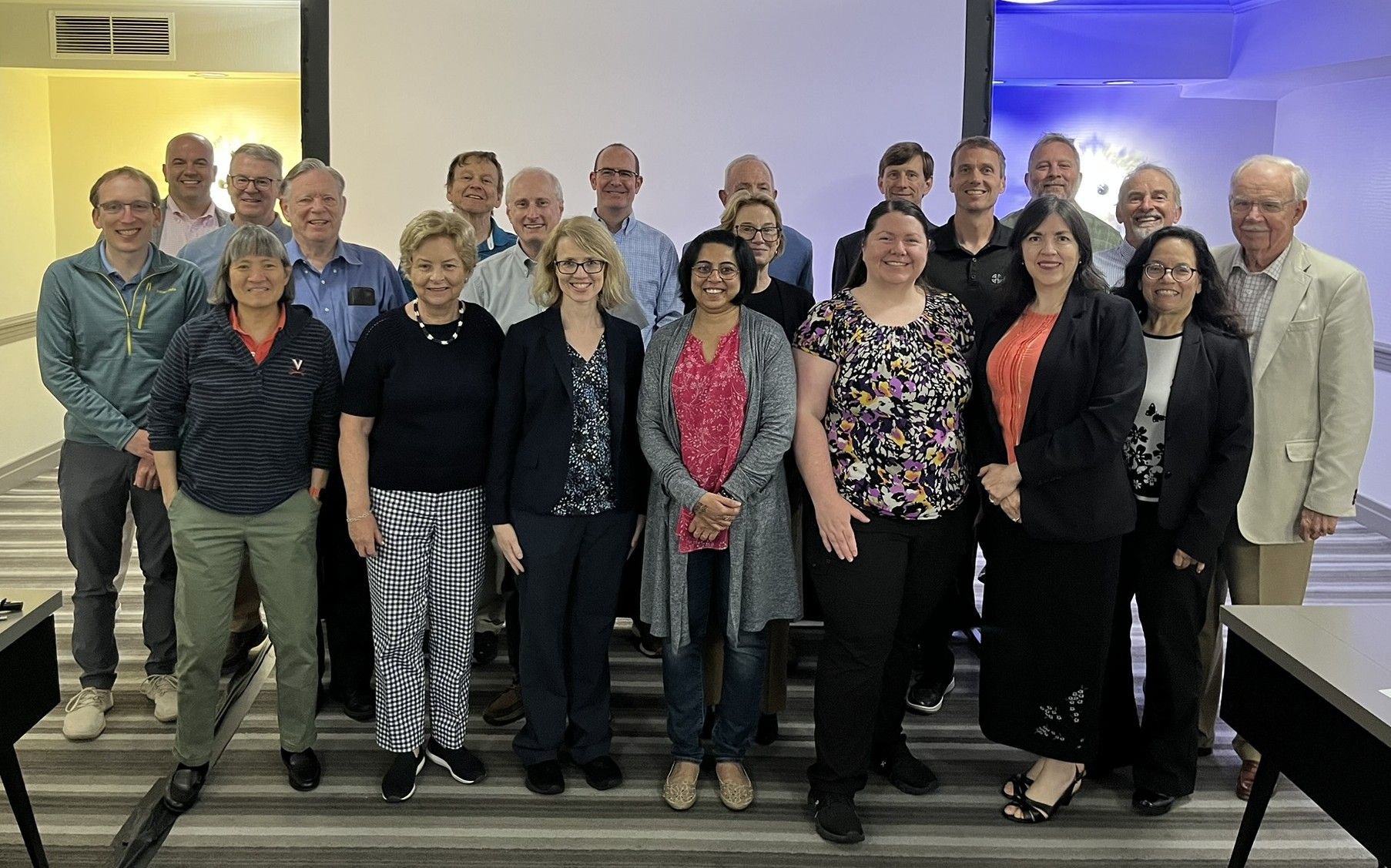
June 2025 - The CACHE Board of Trustees in Chicago at its summer meeting working hard on its upcoming conferences: FOPAM (2026), FOMMS (2027), FOCAPO/CPC (2027), and educational tools.
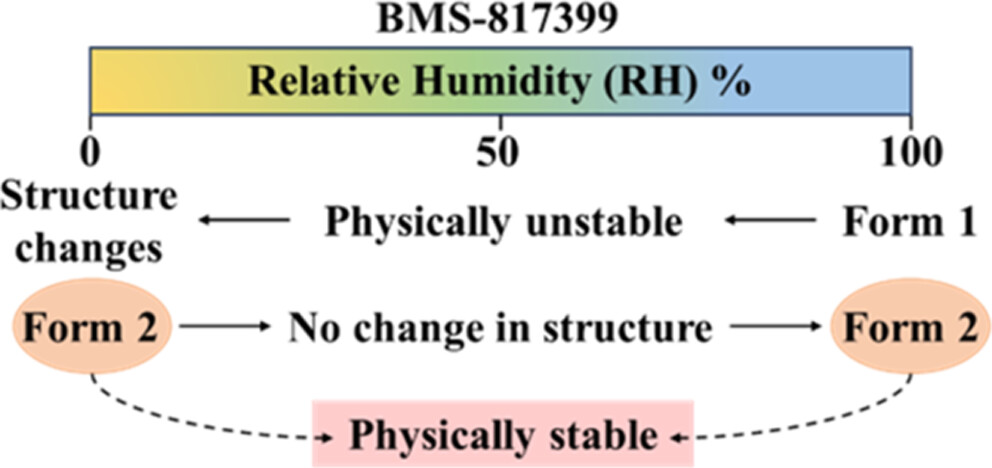
March 2025 - Martha Grover presented a webinar hosted by Technobis on a recent publication on characterization, solubility, and hygroscopicity of an API developed by Bristol Myers Squibb. [Publication] [Presentation]

March 2025 - The Grover Group participates in the annual Georgia Tech Pi Mile! Pictured (from left to right): Nuna, Jessica, Viviana, Luciana, Steven, Yeonwoo, Martha, and Nischal.

February 2025 - Graduate student from the Grover Group, Steven Crouse (not pictured), wins first place for his oral presentation at the annual graduate student ChBE Symposium. Receiving the award on his behalf is another Grover Group member, Nuna Dumakor.
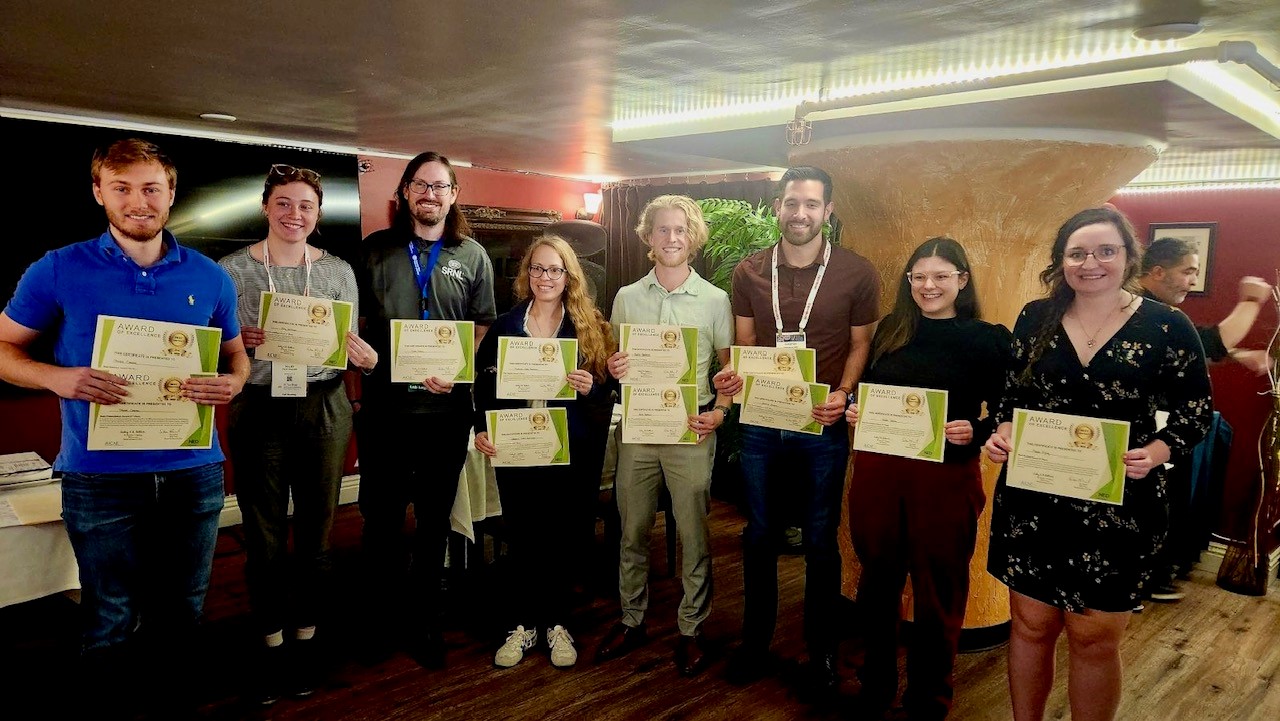
October 2024 - Steven Crouse (left) presented at the Nuclear Engineering Division graduate student session at AIChE and was recognized with a 1st place award for his presentation and a 2nd place award for his abstract.
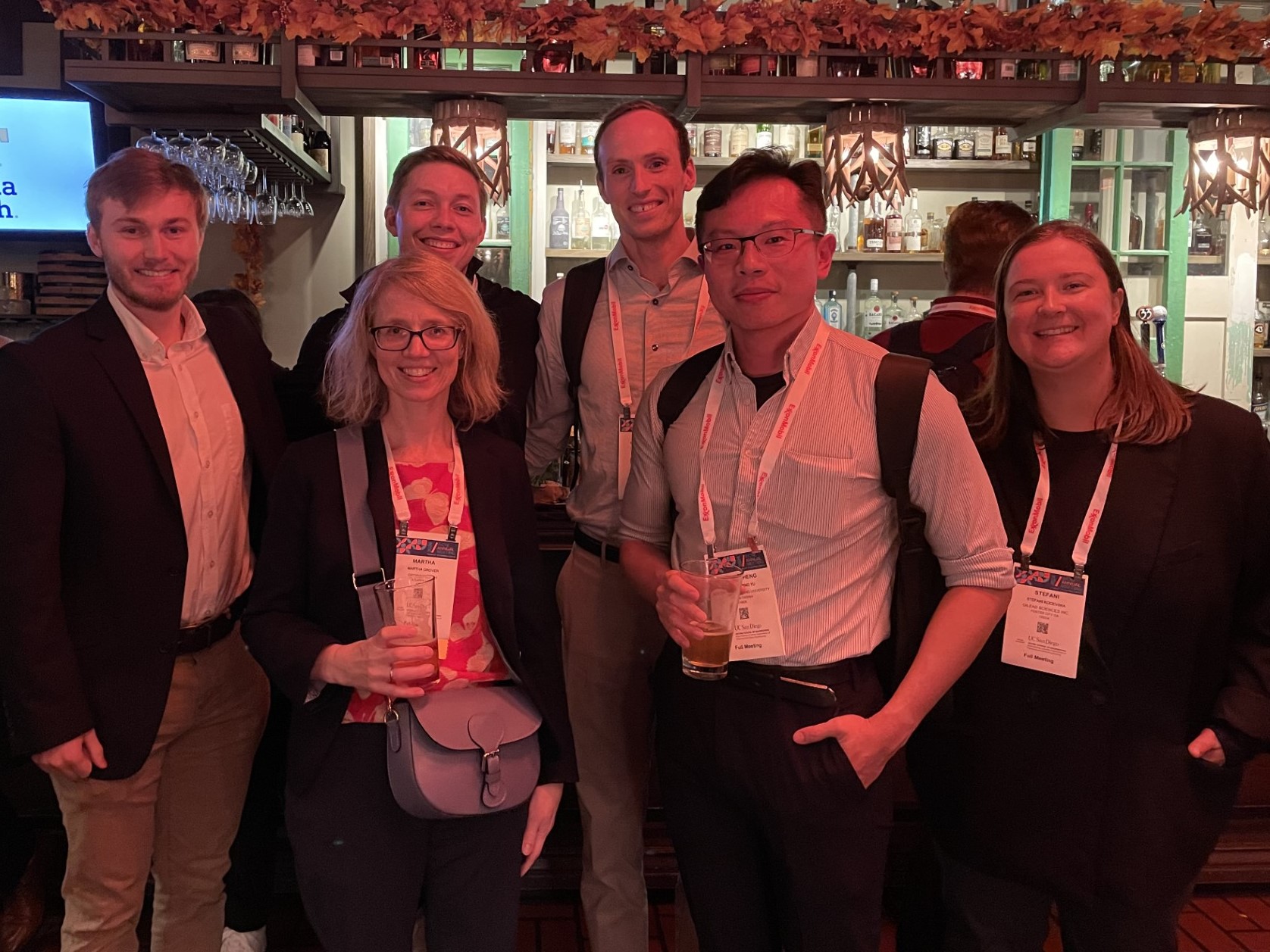
October 2024 - Dr. Grover catching up with Grover group alumni (Patrick Harris, Matthew McDonald, Sheng-Sheng Yu, and Stefani Kocevska) and current group member (Steven Crouse) at the AIChE Annual Meeting.

October 2024 - Dr. Grover catching up with Grover group alumni (Huayu Li, Matthew McDonald, and Xun Tang) at the Larson Workshop on Crystallization.
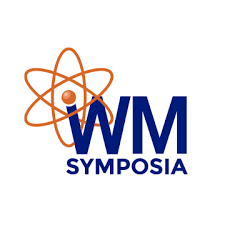
May 2024 - Steven Crouse, Rupanjali Prasad, Ron Rousseau, and Martha Grover were awarded a "Superior Paper" recognition for their recent work at the Waste Management Symposium titled "Detecting Faults in Nuclear Waste Slurry Processing with In-line Probes: a Computational Study."
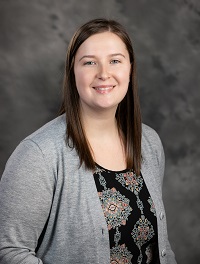
April 2024 - Grover Group graduate, Dr. Stefani Kocevska (Ph.D. 2022), is the first winner of the CRESP Early Career Program Best Paper Award for her paper titled "Effect of ion interactions on the Raman spectrum of NO3-: Toward monitoring of low-activity nuclear waste at Hanford."
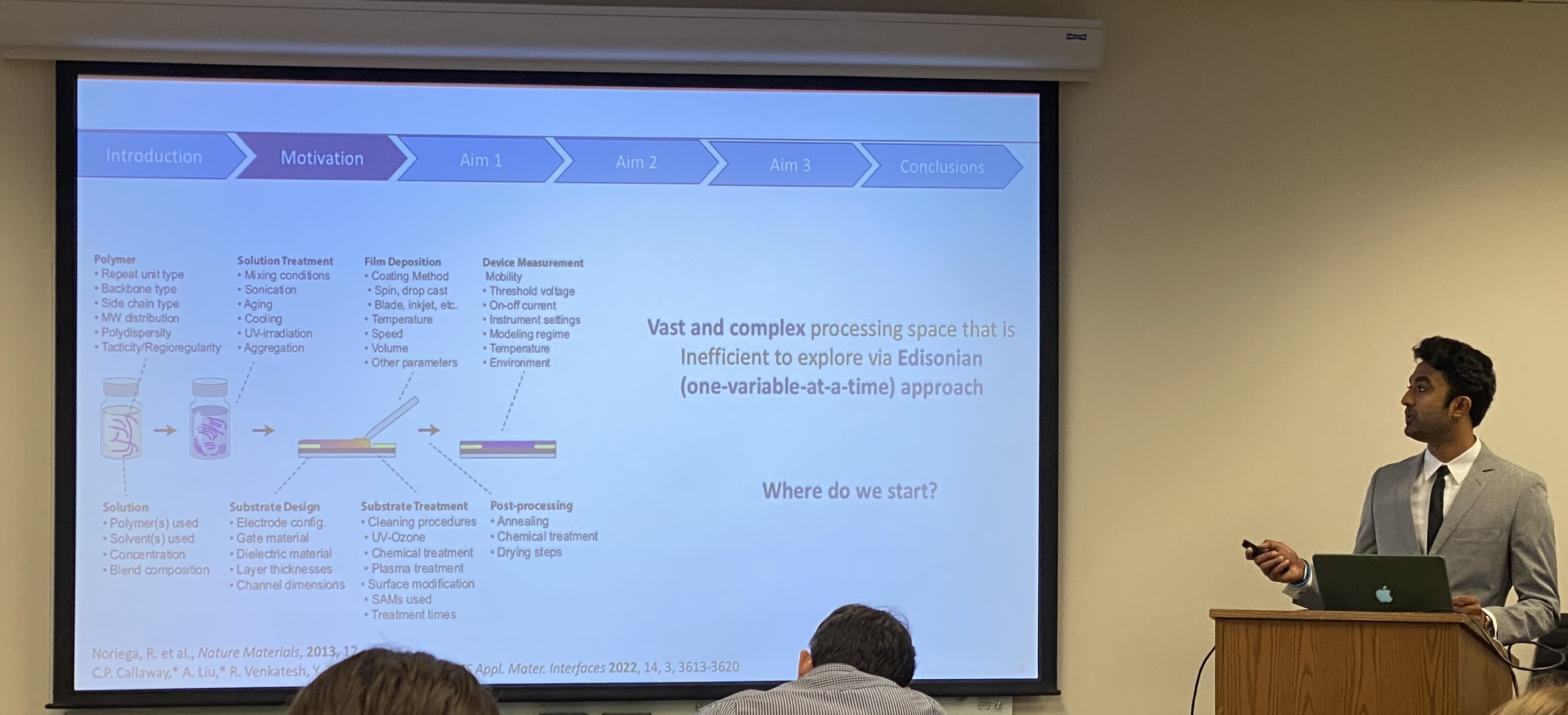
April 2024 - Dr. Rahul Venkatesh successfully defended his PhD thesis. Congratulations Dr. Venkatesh!
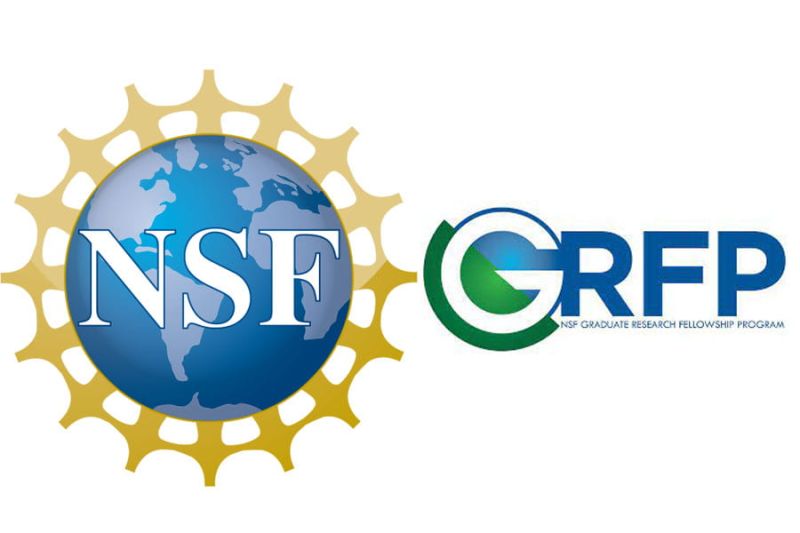
April 2024 - Jessica Bonsu of the Grover Lab is a 2024 recipient of the prestigious NSF Graduate Research Fellowship.
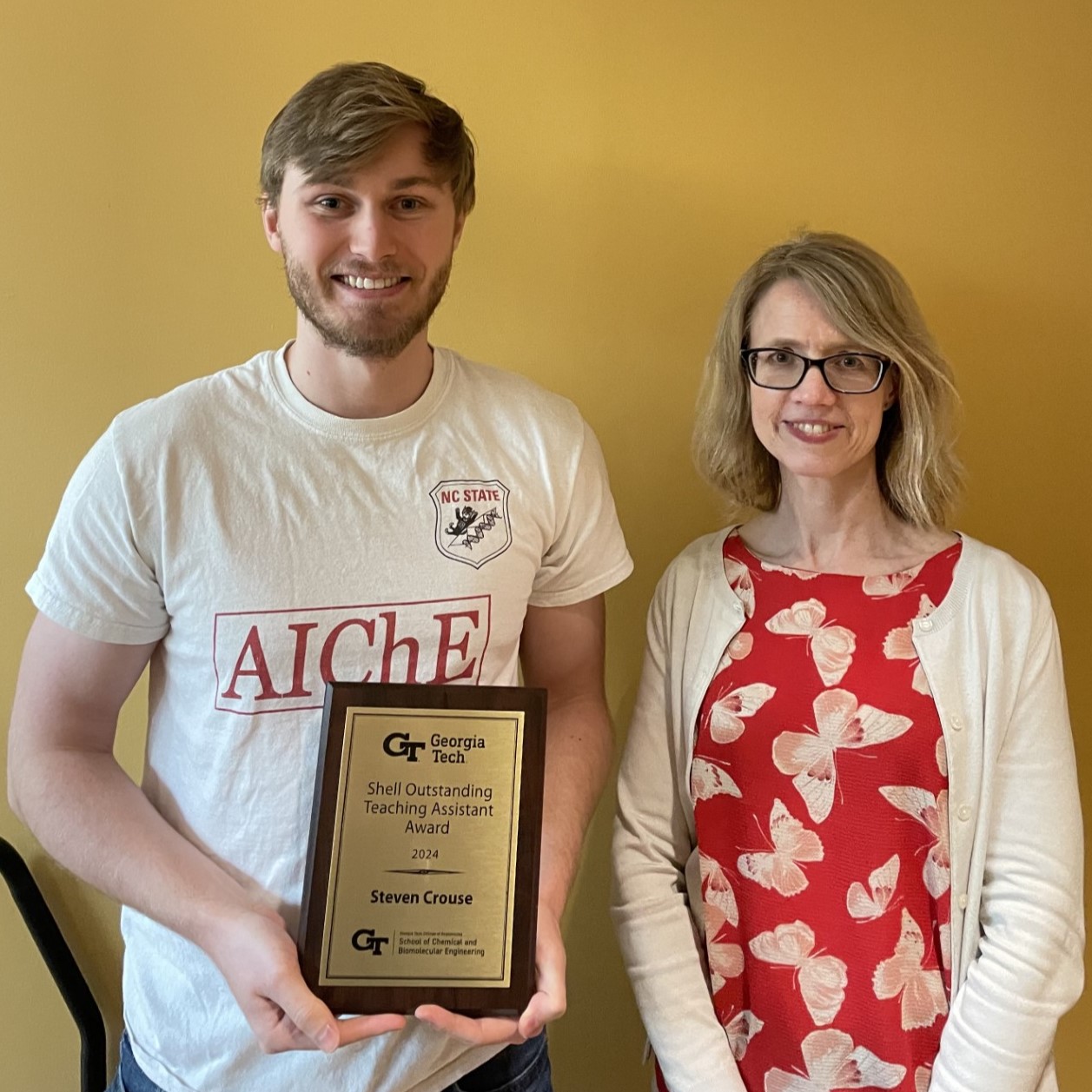
April 2024 - Dr. Grover awarding Steven Crouse with the Shell Outstanding Teaching Assistant Award on behalf of the ChBE department.
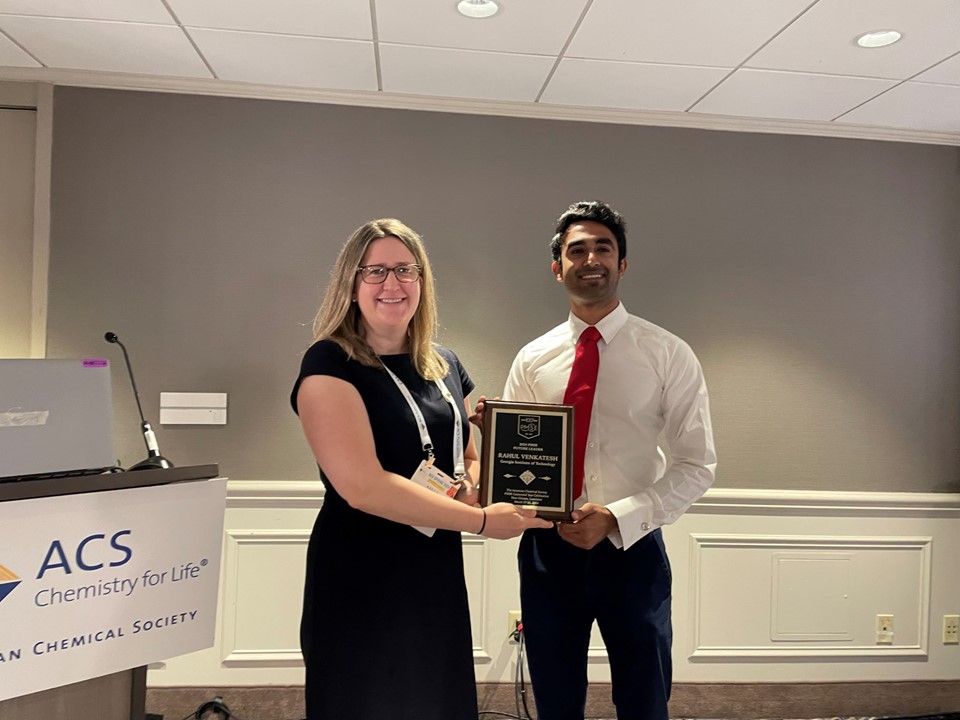
March 2024 - Senior graduate student in the Grover Group, Rahul Venkatesh, received the Future Leaders in Polymeric Material Science and Engineering award at the American Chemical Society Conference. [LINK]
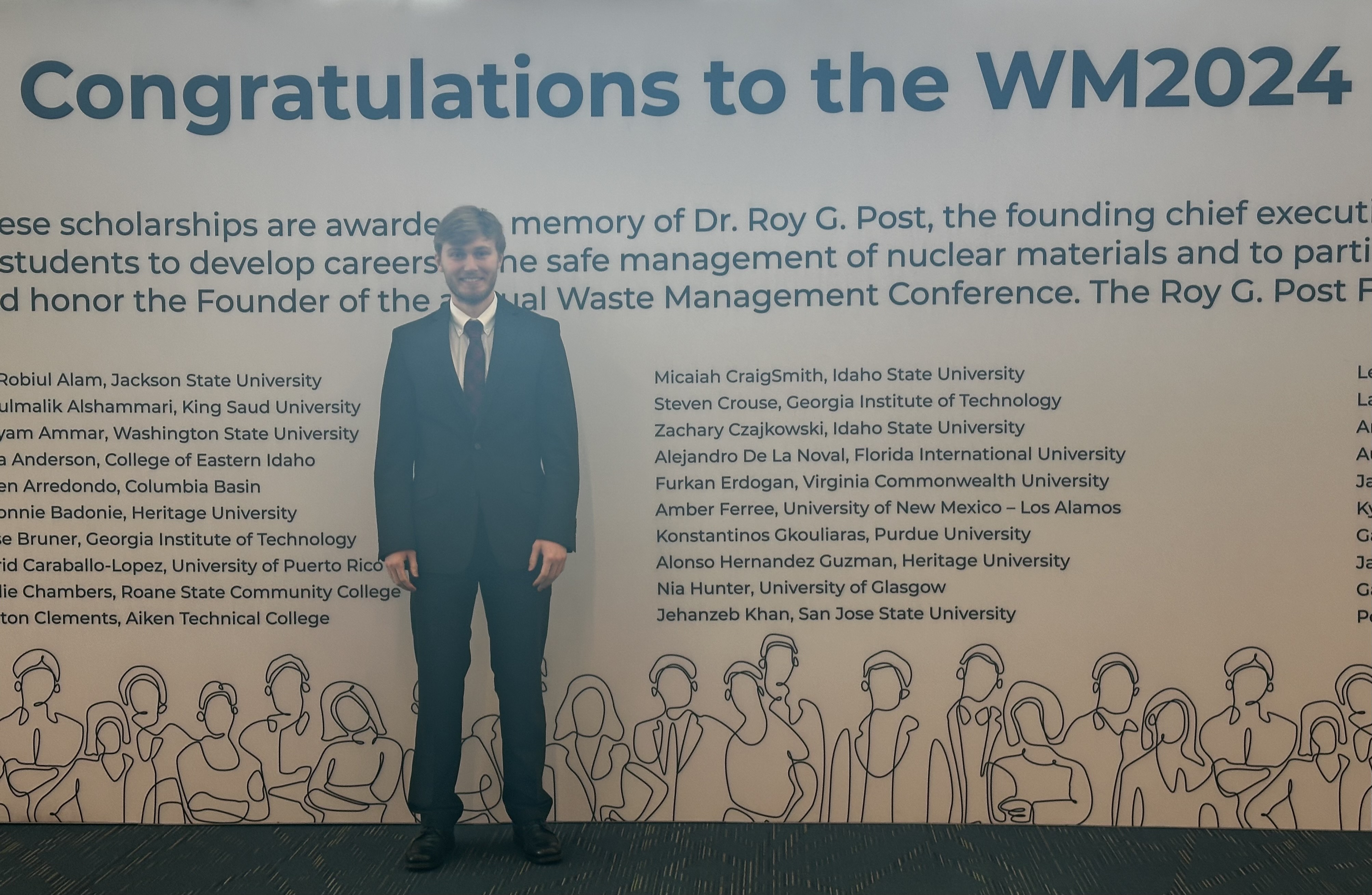
March 2024 - Graduate student in the Grover Group, Steven Crouse, was awarded the Roy G. Post scholarship at the Waste Management Symposium. [LINK]
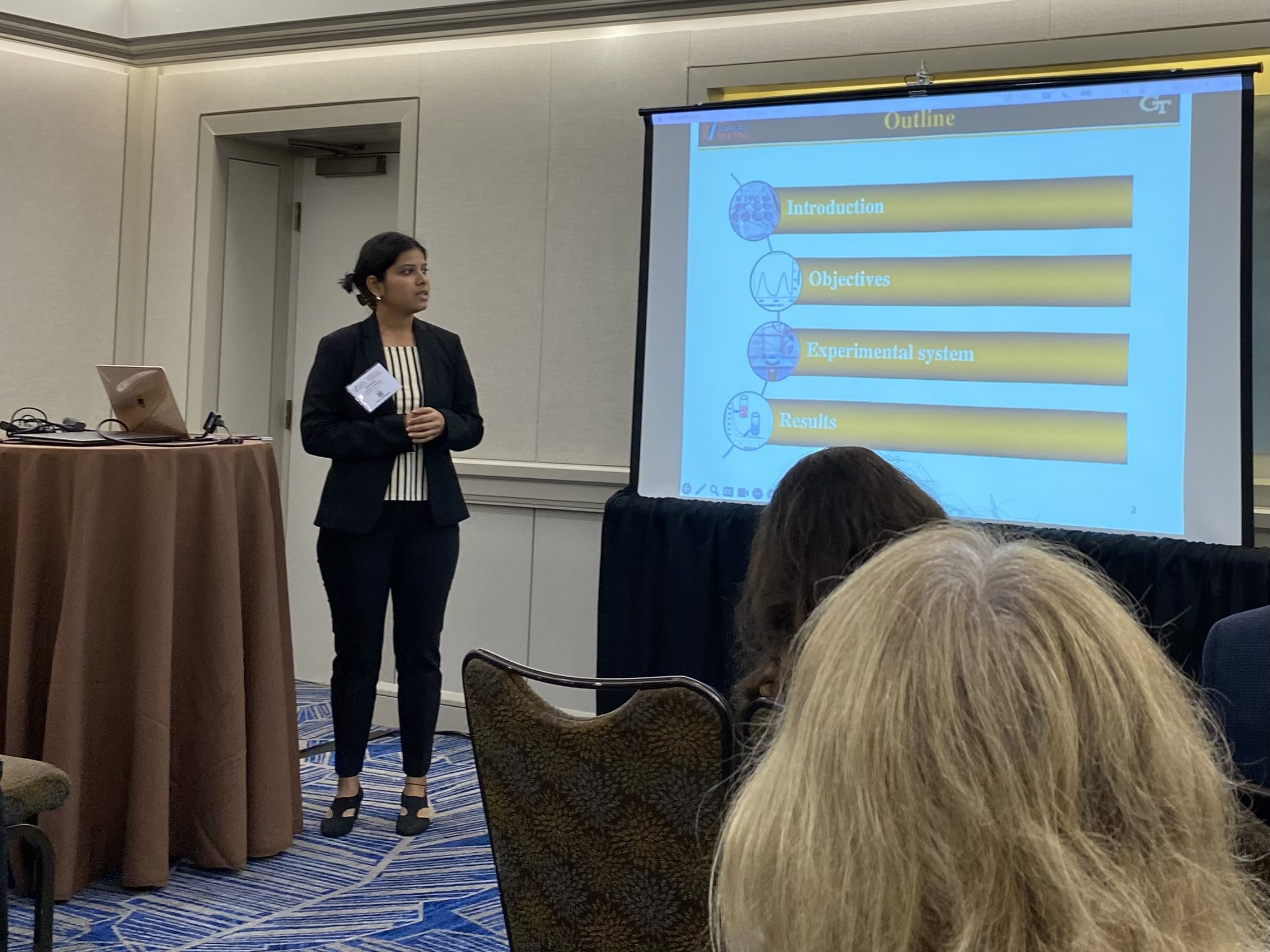
November 2023 - Postdoctoral researcher, Dr. Rupanjali Prasad, giving her talk at AIChE 2023 where she won first place for both her presentation and for her abstract submitted to the Nuclear Engineering Division's Graduate and Early Career Investigations session. Grover Group PhD candidate, Steven Crouse, won third place for his presentation at the same session.
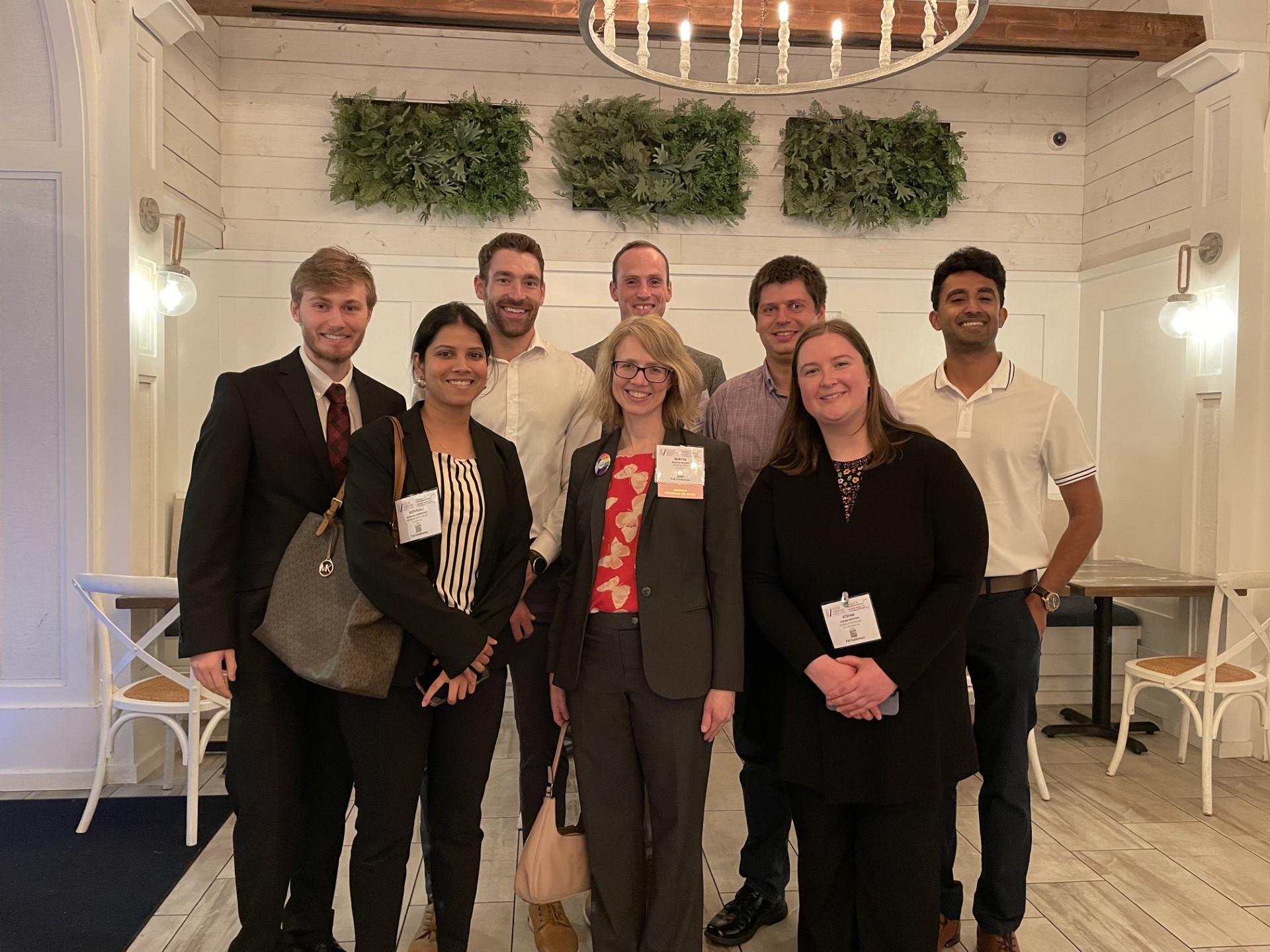
November 2023 - Former and current Grover Group members attending the AIChE conference in Orlando, Florida.
